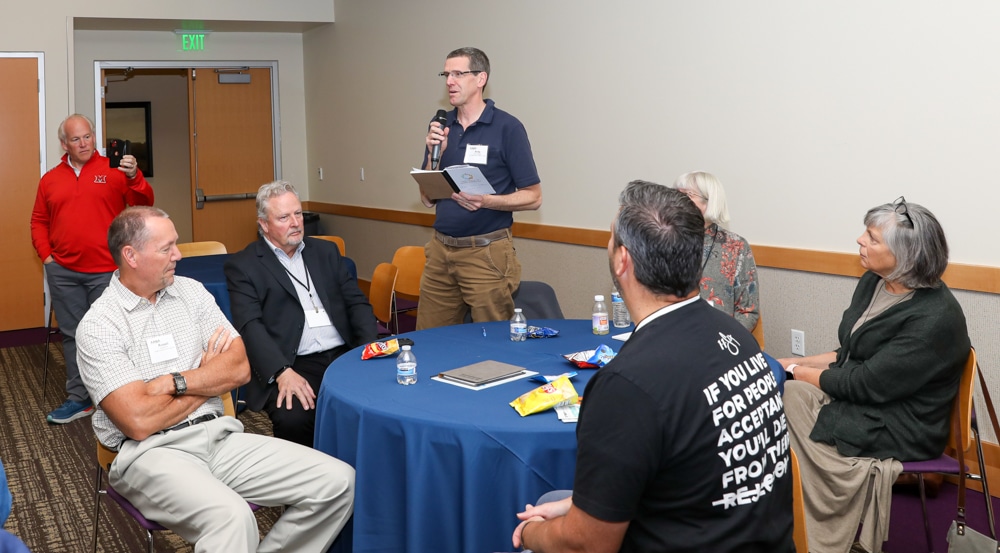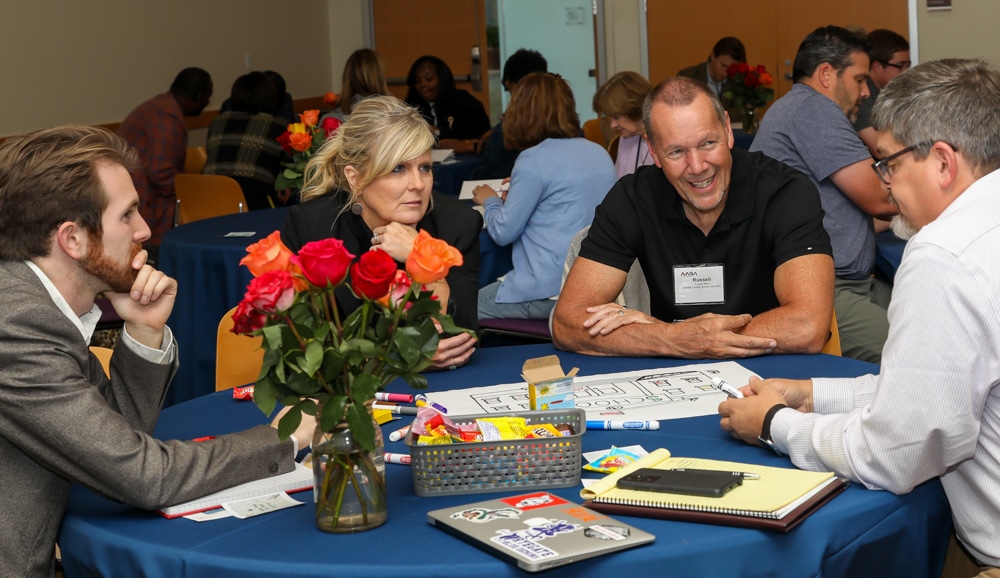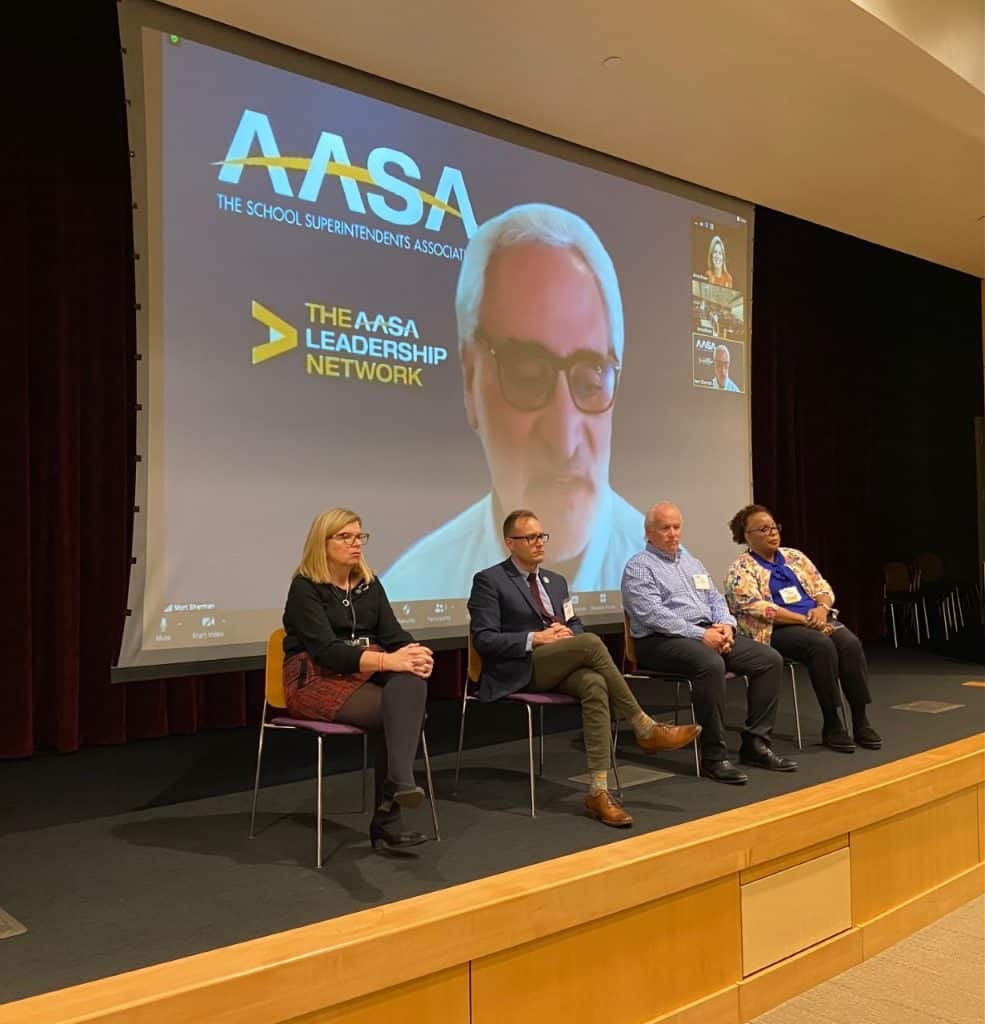The Cook Center for Human Connection hosted school leaders from across the country to a mental health summit in Pleasant Grove, Utah. The summit was co-sponsored by AASA, the School Superintendents Association, the Jed Foundation, and the Huntsman Mental Health Institute.
Around 70 school administrators from more than 30 states attended the three-day conference. They participated in large-group seminars and breakout sessions, all focused on improving the mental health of students.
Kayla Jackson, project director at the American Association of School Administrators, helped organize the summit.
“It was important for us to have the mental health summit because mental health has been a long-standing issue of concern for us,” said Jackson. “The summit was a first step toward the larger work of addressing the needs of the entire system.”

Jackson, along with Anne Brown, president and CEO of the Cook Center for Human Connection, welcomed guests to the summit at the dōTERRA corporate campus in Pleasant Grove.
“We are so honored to play host to this amazing gathering of leaders across the country,” said Brown. “At the Cook Center, we know we can make a contribution by connecting those doing the best research with others who are advancing the work with educators, staff, families, and children.”
Greg and Julie Cook, who founded the Cook Center, also spoke to participants. Greg is a founding executive of dōTERRA.
On the first day, participants learned how to create an atmosphere of inclusion to facilitate conversations.
John MacPhee of the JED Foundation talked about teen suicide and how school leaders can mitigate suicde risks. Later in the afternoon, Utah state representative Steve Eliason discussed legislative efforts to increase access to mental health resources, including the establishment of the 988 Suicide and Crisis Lifeline.
Sessions continued for two more days. Schroeder Stribling, President and CEO of Mental Health America, presented a back-to-school toolkit for educators. The toolkit includes social media posts, message recommendations, statistics, tips, and a list of resources in each state all related to mental wellbeing.
Another presentation was about the Adolescent Brain Cognitive Development (ABCD) Study. The study is sponsored by the National Institutes of Health and measures brain development in children throughout adolescence.
In small groups, participants discussed how to build healthy schools, identified needs in classrooms, and learned about animated resources as a way to connect with youth and build their mental health.
“Handing a group of 70 people tools and resources to go back to their districts and start to work differently is huge,” said Jackson. “The impact of a small gathering for two and half days of influential leaders will have an impact on so many.”
“The big takeaway [for me] is all the resources and connections. I am so excited to be able to take all this back to my district,” said Andrea Trias, a community project manager with Baboquivari Unified School District #40 in Arizona.

Brown said the cohort will maintain momentum by keeping leaders in touch with each other and with the topics that can make an impact on the mental health of the communities served by schools.
“Getting to know the other school administrators who are passionate about this work. The need is growing, to be connected and to learn about some of the research and strategies was well worth it,” said Denise Herrmann, superintendent of Community High School District 128 in Illinois.
“There is a saying, ‘I’m not new to this, I’m true to this,’” said Jackson. “Now the rest of the world understands how pressing mental health issues are in schools. School administrators have known this for a while and I’m glad we’re doing the work now,”




